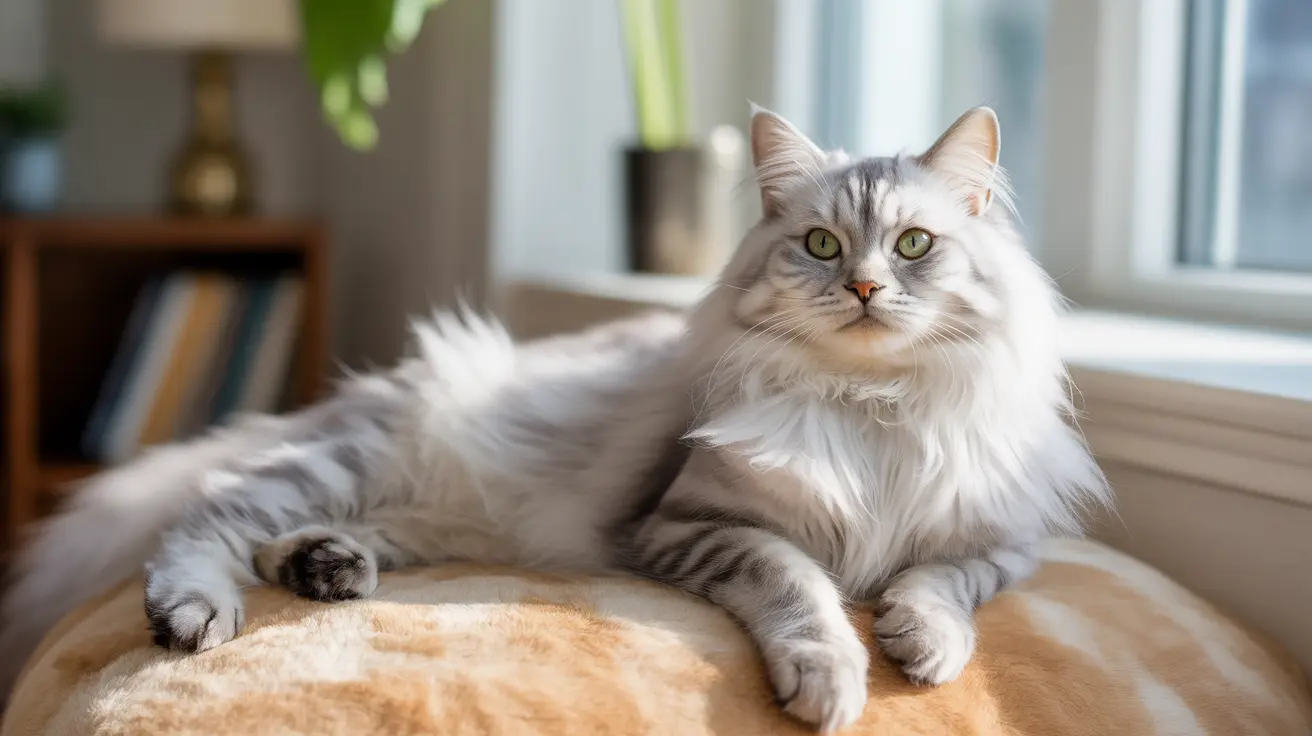Introduction
The Lykoi wolf cat, one of the world's most distinctive and rare feline breeds, captivates attention with its werewolf-like appearance and unique genetic makeup. These extraordinary cats, known for their sparse, patchy coats and wild appearance, have become increasingly sought-after pets despite their relative newness to the breeding world.
While their striking looks might suggest complex health needs, Lykoi cats are generally healthy animals when properly cared for. However, their distinctive partial hairlessness does require special attention to certain aspects of their health and daily care.
Understanding the Wolf Cat's Unique Characteristics
The Lykoi wolf cat emerged naturally from a genetic mutation found in feral cats, leading to their official recognition as a breed in 2011. Their most notable feature is their partial hairlessness, which creates their signature wolf-like appearance. Unlike other hairless breeds, Lykoi cats are born with full coats that gradually thin to create their distinctive look.
These cats typically display:
- A grizzled, roan-colored coat that's naturally sparse
- Distinctive bare patches around the face, particularly near the eyes and mouth
- Long, pointed ears that enhance their wolf-like appearance
- A shorter-than-average tail
- Strong, athletic build despite their sometimes scruffy appearance
Health Considerations for Lykoi Cats
Skin Care and Protection
Due to their partial hairlessness, Lykoi cats require specific attention to skin health. Their reduced coat density makes them particularly susceptible to:
- Sunburn and UV damage
- Skin infections and allergies
- Temperature sensitivity
- Lymphocytic mural folliculitis
Regular skin checks and proper sun protection are essential for these unique cats. Indoor living is strongly recommended to minimize exposure to harmful UV rays and extreme temperatures.
Temperature Regulation
Lykoi cats have special needs when it comes to maintaining body temperature. Their sparse coat offers limited protection against both heat and cold, making them particularly vulnerable to temperature extremes. Owners should ensure their Lykoi has:
- Warm, draft-free sleeping areas
- Access to climate-controlled environments
- Protective clothing for cold weather if necessary
- Plenty of cool spots during hot weather
Essential Care Requirements
Grooming and Maintenance
Despite their minimal coat, Lykoi cats benefit from regular grooming to maintain skin health. A gentle weekly brushing helps remove dead skin cells and stimulates natural oil production. Additionally, their exposed skin may need occasional cleaning to prevent oil buildup.
Nutrition and Hydration
Proper nutrition plays a crucial role in maintaining a Lykoi's health. Their unique physiology may require:
- High-quality protein-rich diet
- Adequate moisture intake
- Omega-3 fatty acid supplements for skin health
- Regular feeding schedule to maintain energy levels
Frequently Asked Questions
What are the most common health problems associated with Lykoi (wolf cats)?
The most common health issues in Lykoi cats relate to their skin sensitivity, including sunburn susceptibility, temperature regulation challenges, and potential skin infections. They may also experience lymphocytic mural folliculitis, a condition affecting their hair follicles.
How should I care for and protect my Lykoi's sensitive skin and coat?
Protect your Lykoi's skin through regular gentle grooming, limiting sun exposure, maintaining indoor living conditions, and using pet-safe sunscreen when necessary. Regular veterinary check-ups can help monitor skin health and address any issues early.
Why do Lykoi cats have a wolf-like appearance and sparse fur?
The Lykoi's distinctive appearance results from a natural genetic mutation affecting hair growth and follicle development. This mutation causes partial hairlessness and creates their unique wolf-like appearance, including sparse fur around the face and body.
Can Lykoi cats live outdoors safely or do they need to stay indoors?
Lykoi cats should primarily live indoors due to their sensitivity to temperature extremes and susceptibility to sunburn. Their sparse coat provides inadequate protection against environmental elements, making outdoor living unsafe for their health and well-being.
Are Lykoi cats hypoallergenic or better for people with allergies?
No, Lykoi cats are not hypoallergenic. Despite their partial hairlessness, they still produce the same allergenic proteins found in other cats, which can trigger allergic reactions in sensitive individuals.
Conclusion
While the Lykoi wolf cat's distinct appearance may suggest complex care requirements, these fascinating felines can thrive with appropriate attention to their unique needs. Understanding and addressing their specific health considerations, particularly regarding skin care and temperature regulation, ensures these remarkable cats can live long, healthy lives as cherished family members.






